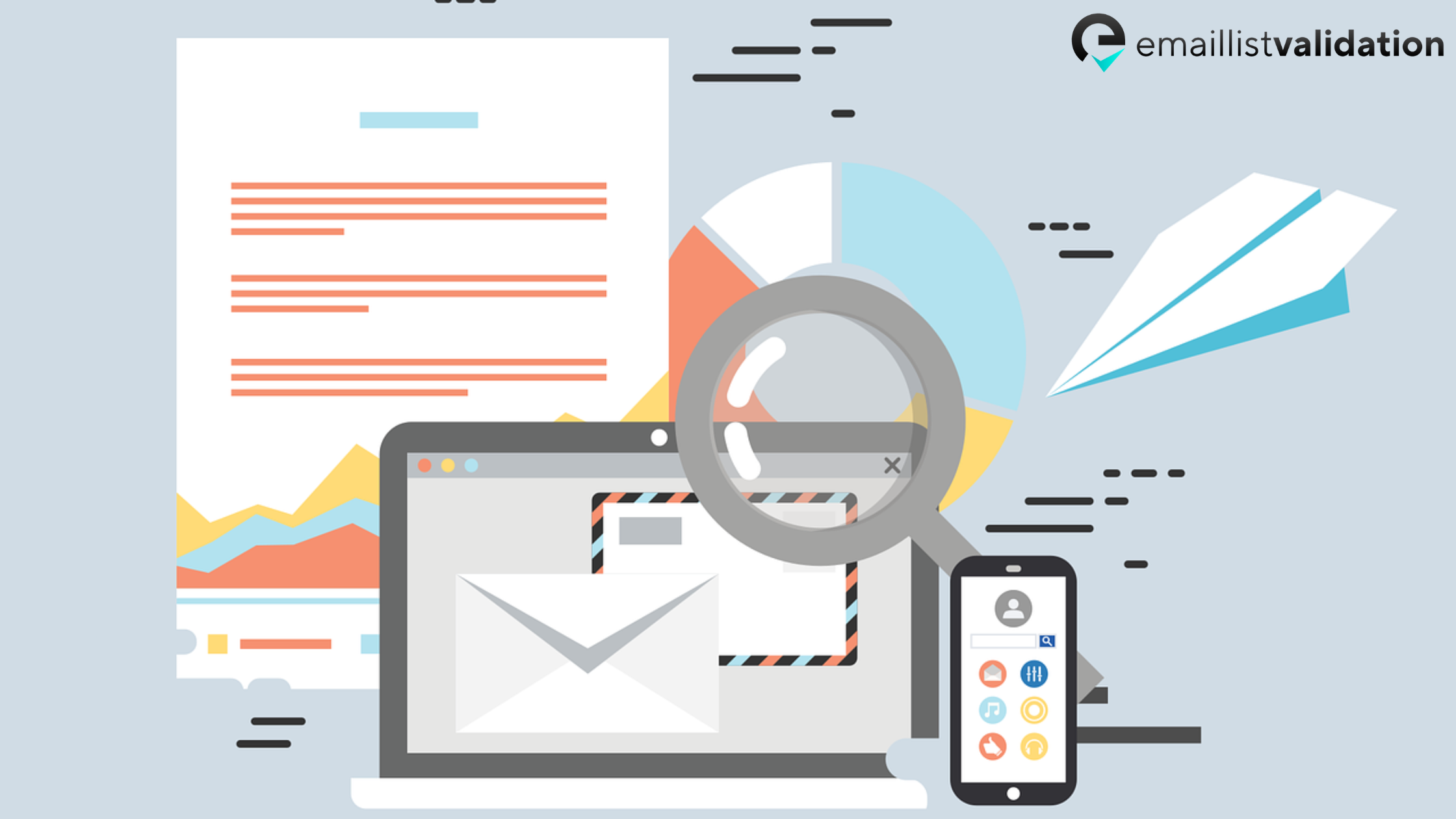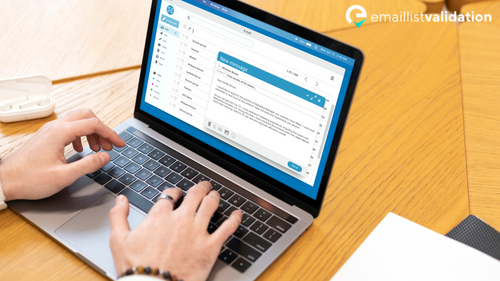In today's digital world, email has become an essential communication tool for both personal and professional purposes. However, with the rise of spamming and phishing, identifying disposable email addresses has become increasingly important. Disposable email addresses, also known as throwaway or temporary email addresses, are often used by spammers, scammers, and fraudsters to evade detection and carry out their malicious activities.
In this article, we will explore some effective methods for identifying disposable email addresses.
Methods for identifying disposable email addresses

Disposable email addresses are temporary email addresses that can be used to sign up for services or receive emails without revealing a user's real email address. While they are convenient for users, they can also be a problem for businesses that rely on accurate contact information for communication and data management. Here are some methods for identifying disposable email addresses:
Check the email domain
Disposable email addresses often have a unique and nonstandard domain name. By checking the domain name of the email address, businesses can identify whether it is a legitimate email address or a disposable one. For example, common disposable email domain names include "mailinator.com," "guerrillamail.com," and "tempmail.com."
Look for suspicious activity
Disposable email addresses are often used for fraudulent activities such as creating fake accounts, sending spam, or committing identity theft. By looking for suspicious activity, such as a large number of accounts created from the same email address, businesses can identify disposable email addresses and block them.
Check the email header
The email header contains metadata about the email, including the sender's IP address and email client. By analyzing the email header, businesses can identify whether the email was sent from a disposable email service or a legitimate email provider.
Use an email verification service
Email verification services can help businesses identify disposable email addresses by checking the email address against a database of known disposable email domains. These services can also perform other types of email verification, such as syntax checks and SMTP checks, to ensure that the email address is valid and active.
Checking the email domain

Checking the email domain is a crucial step in verifying the legitimacy of an email sender. Email domains are the parts of an email address that follows the '@' symbol, indicating the website or company that manages the email account. By analyzing the domain, you can determine whether the email is coming from a legitimate source or a potentially malicious one.
Explanation of how disposable email services use specific domains
Disposable email services use specific domains that are designed to create temporary email addresses that last only for a short period. These email addresses are commonly used for spamming, phishing, and other malicious activities. Disposable email services allow users to create email addresses quickly and anonymously, making it difficult to track the origin of malicious emails. Therefore, checking the domain of the email address can help to identify whether the email is from a disposable email service.
Examples of disposable email domains
Some examples of disposable email domains include:
Mailinator.com
Mailinator is a popular disposable email domain that allows users to create an email address without the need for registration. This domain is commonly used for temporary email addresses, and emails are automatically deleted after a few hours. Mailinator is a favorite choice for individuals who want to sign up for online services without revealing their real email addresses.
Guerrillamail.com
Guerrilla Mail is another popular disposable email domain that allows users to create temporary email addresses. Emails received at Guerrilla Mail addresses are automatically deleted after one hour. The domain is known for its privacy-focused features, including the ability to use a random email address generator.
Temp-mail.org
Temp Mail is a disposable email domain that allows users to create temporary email addresses for free. Emails received at Temp Mail addresses are automatically deleted after a few hours, and users can extend the lifespan of their temporary email addresses if necessary. Temp Mail is commonly used for spamming and phishing activities.
10minutemail.com
10 Minute Mail is a disposable email domain that allows users to create temporary email addresses that last for ten minutes. This domain is popular for its ease of use, as users do not need to sign up or register to use the service. 10 Minute Mail is commonly used for online signups and registration, where users need to provide an email address, but do not want to use their real address.
Importance of recognizing suspicious domains
It is essential to recognize suspicious domains because they can be used for a range of fraudulent activities. For example, scammers may use disposable email services to create fake email addresses and then send phishing emails to trick individuals into revealing sensitive information. Similarly, spammers may use these domains to send unsolicited emails promoting fake products or services.
In addition, some hackers may use disposable email services to register for online services, bypassing the need to provide a valid email address. By doing so, they can create multiple accounts anonymously, which can be used for fraudulent purposes, such as spamming or online fraud.
Looking for suspicious activity

Common activities associated with disposable email addresses
Disposable email addresses are often associated with suspicious activities, and it is essential to recognize these activities to protect yourself from potential scams. Here are some common activities associated with disposable email addresses:
Spamming
Disposable email addresses are often used to send unsolicited emails promoting fake products or services. These emails may contain links to malicious websites or attachments that can infect your computer with malware.
Phishing
Phishing emails are designed to trick individuals into providing personal information such as usernames, passwords, and credit card details. Disposable email addresses are commonly used to send phishing emails, as they make it difficult to track the origin of the email.
Fraudulent activities
Hackers and scammers may use disposable email addresses to create fake accounts and engage in fraudulent activities such as identity theft and financial fraud.
Examples of suspicious messages
- Emails that contain spelling and grammar errors or unusual phrasing:
Example 1: "Dear Sir/Madam, We apoligize for the inconvineance, but we need you to confimr your bank details."
Example 2: "Hello, I have an urgent proposal for you to invest in a new business opportunity. Please contect me for more detials."
- Emails that request personal information such as usernames, passwords, and credit card details:
Example 1: "Dear customer, we need you to update your credit card information. Please provide your full name, credit card number, expiration date, and security code."
Example 2: "Your email account has been compromised. Please provide your username and password to reset your account."
- Emails that contain urgent or threatening language:
Example 1: "Your account has been hacked. If you do not provide your personal information within 24 hours, we will take legal action against you."
Example 2: "Your computer has been infected with a virus. Please click on the link to download our antivirus software immediately."
- Emails that contain suspicious links or attachments:
Example 1: "You have been selected to receive a free gift. Please click on the link to claim your prize."
Example 2: "We noticed an unusual login attempt on your account. Please click on the link to reset your password."
It is essential to be cautious when receiving emails from unknown senders, especially those that contain suspicious activity. If you receive an email from a disposable email address, it is important to take extra precautions and not click on any links or attachments. Instead, you should verify the sender's identity before taking any further action.
Using an email verification service

Email verification services are designed to identify and verify if email addresses are valid to improve the accuracy of your email list. One of the features of these services is the ability to identify disposable email addresses (DEAs) – temporary email addresses created for short-term use. Identifying DEAs is important because they can lead to higher bounce rates, lower engagement rates, and a negative impact on your sender reputation.
Explanation of how email verification services work
Email verification services use a variety of techniques to identify DEAs. One of the most common methods is to check email addresses against a list of known DEA domains. Disposable email address domains are constantly changing, so verification services regularly update their lists to stay up-to-date. Another method used by some verification services is to check email addresses against a list of known DEA providers. These providers offer temporary email addresses that can be used for a short time, usually for the purpose of receiving a confirmation email.
Examples of email verification services
There are many email verification services available that can help identify DEAs. Some of the most popular include:
- EmailListValidation: It has services that use advanced algorithms and techniques to validate email addresses and check if they are associated with DEAs.
- Bounceless: Their services offer to identify DEAs by checking the email address against a database of known DEA domains or by using real-time verification to check if the email address is active and in use.
- ZeroBounce: Offers DEA detection as part of their email verification service, along with email validation, spam trap detection, and more.
- NeverBounce: Provides real-time email verification, including DEA detection, with a 99.9% accuracy rate.
Some email verification tools can let you verify emails for free, which can be helpful in maintaining a balanced budget. But you should keep in mind that there might be some limitations in terms of features.
Benefits of using an email verification service
Using an email verification service to identify DEAs can provide several benefits, including:
Improved email deliverability
DEAs can negatively impact your email deliverability and increase the chances of your emails being marked as spam. By identifying and removing DEAs from your email list, you can improve your email deliverability and ensure that your emails are reaching your target audience.
Reduced bounce rates
DEAs are often associated with high bounce rates, which can damage your sender reputation and affect your ability to reach your target audience. By using an email verification service to identify DEAs and remove them from your email list, you can reduce your bounce rates and maintain a positive sender reputation.
Increased engagement
By removing DEAs and other invalid email addresses from your email list, you can improve the engagement rates of your email campaigns. This is because your emails will be reaching real people who are interested in your content, rather than fake or temporary email addresses that are unlikely to engage with your emails.
Protection against fraud and spam
DEAs are often used for fraudulent activities and spamming, which can harm your business and damage your reputation. By identifying and removing DEAs from your email list, you can protect your business from fraud and spam, and maintain a positive reputation among your audience.
Conclusion
In conclusion, identifying disposable email addresses is an important step in maintaining the security and credibility of your email communications. By following the tips outlined in this article, such as checking for suspicious domains and using email verification services, you can easily spot and filter out disposable email addresses from your contact list. By taking these precautions, you can protect your business from spam, scams, and other online threats, while ensuring that your legitimate correspondences reach their intended recipients.



